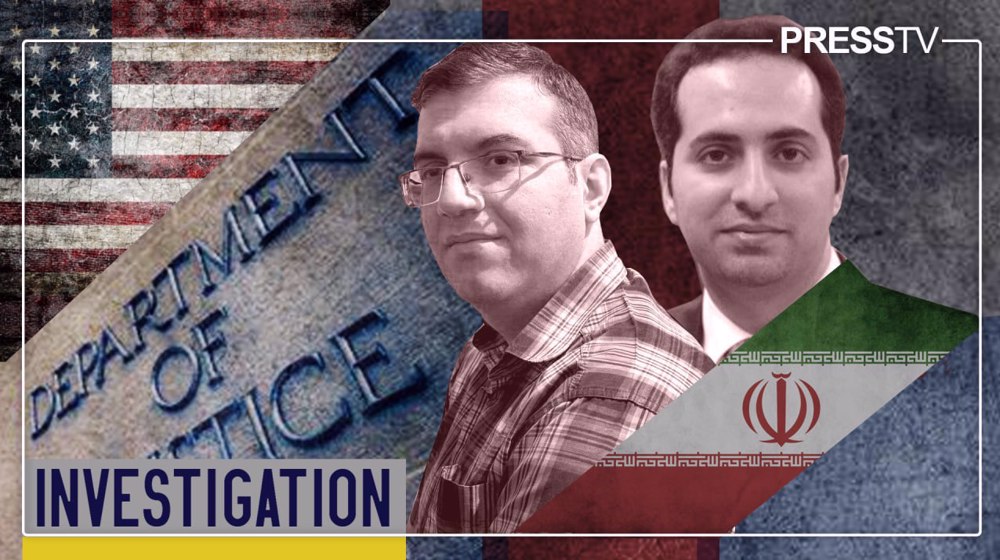British government further criminalizes pro-Palestinian activism
By Kit Klarenberg
On March 30, the British Home Office announced a raft of so-called "protective security measures,” ostensibly intended to safeguard synagogues and faith schools, costing $18.7 million.
In reality, the development is a disturbing escalation in the British government’s long-running war on pro-Palestinian activism, through which the mephitic bond between London’s security and intelligence agencies and hostile Zionist entities at home and abroad will intensify significantly.
Funding for the measures flows from the Jewish Community Protective Security grant, already bankrolled by London to the tune of tens of millions of pounds annually.
The sum covers “increased protective security, including security guards and other measures such as CCTV and alarm systems to protect against persistent hate crime, anti-social behaviour, terrorism and state threats,” allegedly targeted at Britain’s Jewish community.
Few would argue with the need to protect religious observers of every stripe, and their institutions, from violent attack. Yet, the effort’s core component, a newly-created Jewish Community Police, Crime and Security Taskforce, points to a far more sinister agenda.
The first law enforcement body of its kind in British history, it will be chaired by far-right Home Secretary Suella Braverman, and run by “senior policing leaders” and government ministers, in conjunction with the Mossad-connected Community Security Trust (CST).
According to the Home Office, the Taskforce will meet thrice annually, providing “a regular forum to discuss with operational partners communal security concerns relating to policing, terrorism, state threats, hate crime, and public order matters” connected to Britain’s Jewish community.
Key topics of consideration in these meetings will be ensuring Britain’s police and the Crown Prosecution Service “are using their powers to arrest and charge criminals who pose a threat to the Jewish community,” and the necessity of “[reviewing] operational policing guidance in light of concerns shared by the Jewish community,” which “could include guidance on specific chants, banners and emblems which are antisemitic.”
Outlining the Taskforce’s responsibilities directly from CST’s London offices, Braverman told the Jewish Chronicle that such “guidance” would assist “meaningful action” being taken on “antisemitic” choruses of the “totally unacceptable” popular freedom slogan “from the river to the sea, Palestine will be free” by protesters, “with impunity”.
She also pledged that the Home Office would “encourage people to adopt” the International Holocaust Remembrance Association (IHRA) working definition of antisemitism.
That definition notoriously includes 11 allegedly illustrative examples of antisemitism, seven of which explicitly relate to the Israeli regime. It has been condemned by legal scholars for conflating legitimate criticism of the Zionist entity with antisemitism and even repudiated by the individual who drafted it, on much the same grounds.
Meanwhile, CST in common with many other Zionist organizations has long sought to illegalize the chant.
In other words, the British state’s categorization and policing of antisemitism is now being directly influenced by an organization that seeks to arbitrarily ban slogans and expressions of solidarity with Palestine it does not like, with deep and cohering ties to a foreign intelligence agency responsible for enforcing brutal policies of apartheid, which spies on and harasses Palestinian solidarity activists abroad.
As such, any and all forms of pro-Palestinian activism could become criminal offenses.
Prejudicial and proud
The British Home Office announcement’s repeated references to “state threats” are another deeply disquieting detail.
Britain’s draconian new National Security Bill is rife with references to “hostile state activity”, which is categorized as “espionage, sabotage, obtaining trade secrets, entering a prohibited place for a purpose prejudicial to the UK, foreign interference or assisting a foreign intelligence service.”
However, the legislation is so broad, British authorities can subjectively designate a wide array of activities as “prejudicial to the interests of the UK,” creating many new criminal offenses, and imposing significantly harsher sentences on existing ones by elevating them to “state threats”.
Several aspects of the National Security Bill appear to have been drafted with specific reference to Palestine Action, a protest group that is determined to end the activities of Israeli weapons manufacturer Elbit Systems on British soil through disruptive direct action.
This is particularly true of “state threats prevention and investigation measures” (STPIMs), an unprecedented “suite” of punitive powers to pre-criminalize citizens, enshrined by the Bill.
Under STPIMs, the British Home Secretary can unilaterally apply restrictions to individuals suspected of engaging in “espionage, sabotage, obtaining trade secrets, foreign interference, entering a prohibited place for a purpose prejudicial to the UK, [and] assisting a foreign intelligence service or serious violence.”
This includes limits and bans on their movement, personal associations, ability to leave the country, use of electronic devices, access to financial services, where they can work, study and live, and more.
“Elbit doesn’t only make killer drones for Israel, but Britain too, and it’s embedded at three RAF bases. Striving to stop mass murder abroad is therefore ‘prejudicial to the interests of the UK’, and STPIMs could be applied to any of our members at any time, simply for being suspected of possibly planning to visit an Elbit factory at some point in the future, without a court-approved warrant or even being charged with a crime,” a Palestine Action representative told me.
STPIMs can be applied to individuals by the Home Secretary “where the prosecution and other disruptive action isn’t a realistic prospect.”
In an egregious contravention of fundamental legal norms, proof of having committed a criminal offense, or intent to do so, isn’t necessary for an individual to be made subject to restrictions, and the British Home Office isn’t obliged to disclose evidence publicly or to suspects themselves if disclosure “would be damaging to national security.”
Strikingly, a speculative STPIM “case study” concocted by the Home Office cites “highly sensitive intelligence” obtained by a foreign spying service, which cannot be used in open court, as an example of evidence that could be used to justify restrictions being applied to citizens and the specifics withheld on national security grounds.
“You can only wonder whether the (British) Home Office specifically had Mossad in mind when they put together that case study. The police have already imposed onerous bail conditions on our activists, some have even had their passports taken under counter-terror laws, and we are subject to constant surveillance,” the Palestine Action representative lamented.
“This further incentivizes the very elements who wish the destruction of the Palestinian people, and their international supporters, to not only spy on us even more intensely but even bear false witness to destroy our campaign.”
The appeal for Zionist entities within and without Britain of being able to level any charge against Palestinian solidarity activists they wish in total secret, and have their activities curtailed as a result, is obvious. For Elbit Systems, which has repeatedly exhibited a reticence to discuss its active, ongoing and direct complicity in abuses perpetrated against Palestinian civilians in open court, and even misrepresented its operations to police investigators, the opportunity is surely all the more beguiling.
For its part, Palestine Action’s spokesperson says the group is undeterred in its goal of vanquishing Elbit from Britain. Others may quite understandably be discouraged.
Kit Klarenberg is an investigative journalist and MintPresss News contributor exploring the role of intelligence services in shaping politics and perceptions.
(The views expressed in this article do not necessarily reflect those of Press TV.)
Israel has slaughtered 13000 students in Gaza, West Bank
VIDEO | More Zionist than Zionists: Biden’s legacy to be defined by Gaza genocide
Hamas confirms handing approval of Gaza ceasefire deal to mediators
VIDEO | Iran: Show of strength
UNRWA will ‘stay, deliver’ aid to Palestinians despite Israel’s ban: Lazzarini
Explainer: What makes Iran's Rezvan and Raad loitering munitions prized assets?
VIDEO | Unseen agony: Missing loved ones of genocide in Gaza
Iran cuts gold import tariff to zero










 This makes it easy to access the Press TV website
This makes it easy to access the Press TV website